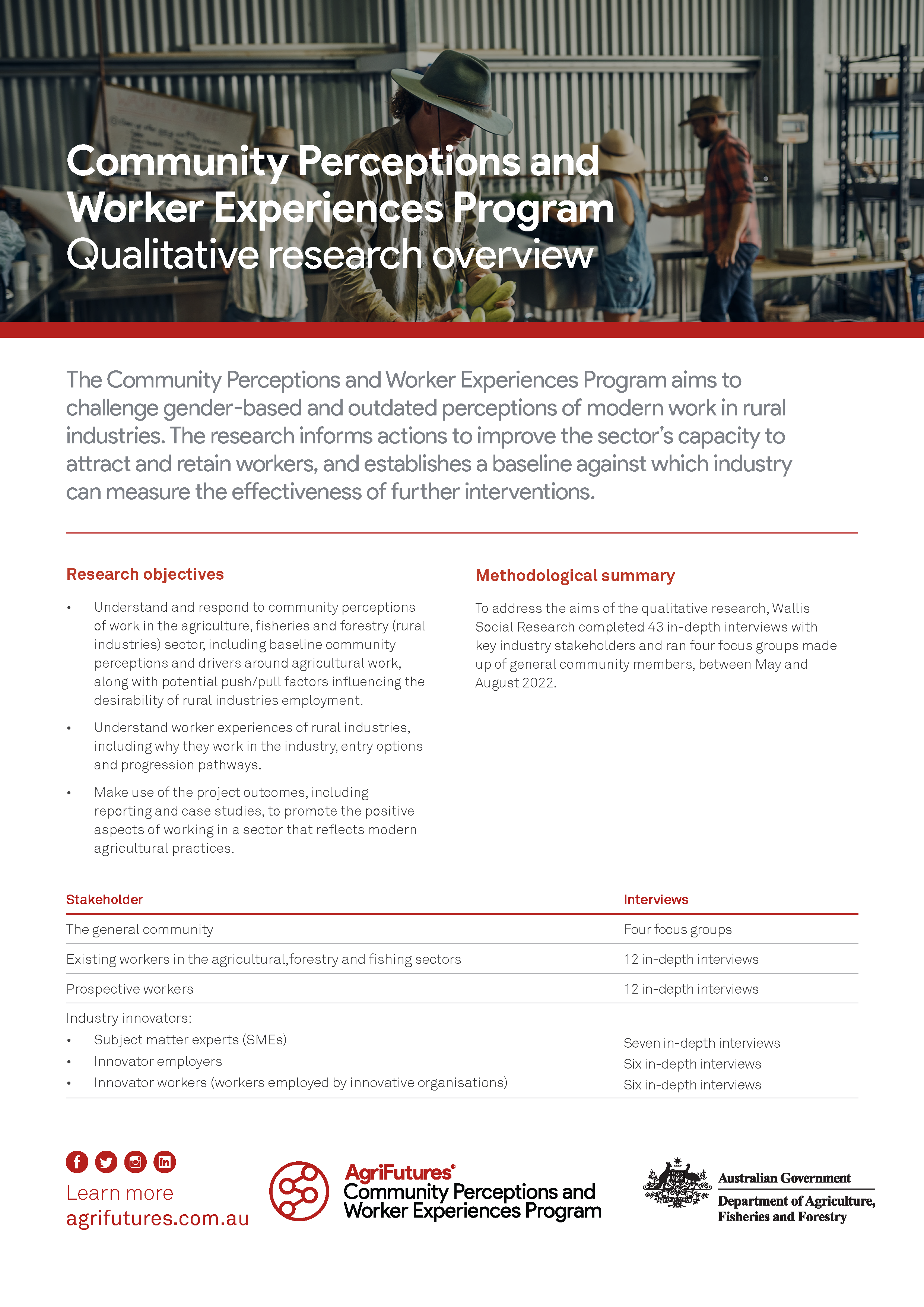The Community Perceptions and Worker Experiences Program aims to challenge gender-based and outdated perceptions of modern work in rural industries. The research informs actions to improve the sector’s capacity to attract and retain workers, and establishes a baseline against which industry can measure the effectiveness of further interventions.
To address the aims of the qualitative research, Wallis Social Research completed 43 in-depth interviews with key industry stakeholders and ran four focus groups made up of general community members, between May and August 2022.
Retaining workers in rural industries was found to have multiple factors at play acting to either attract workers to remain in (be pulled toward) the sector or push workers away from it. Pull factors included having a regional/rural affinity, the nature of hands-on education/training provided in on-site roles, working away from the production operations but in the interests of the operation is a driver for those in off-farm roles. Push factors included inability to find roles that suit changing needs, difficulty finding meaningful social connections, lower pay in entry-level or low-level roles, and lack of management visibility and access.
Attracting workers to rural industries was found to have multiple factors at play acting to either attract workers to (be pulled toward) the sector or push workers away from considering it. Pull factors included life stage interest, high demand for all workers, great pay for specialty skills, and high variation within roles for tertiary-educated workers. Push factors included cemented professions in unrelated fields, the ‘rural-city divide’, perceived social limitations of living rurally, and urban drift reducing the pool of local workers.





